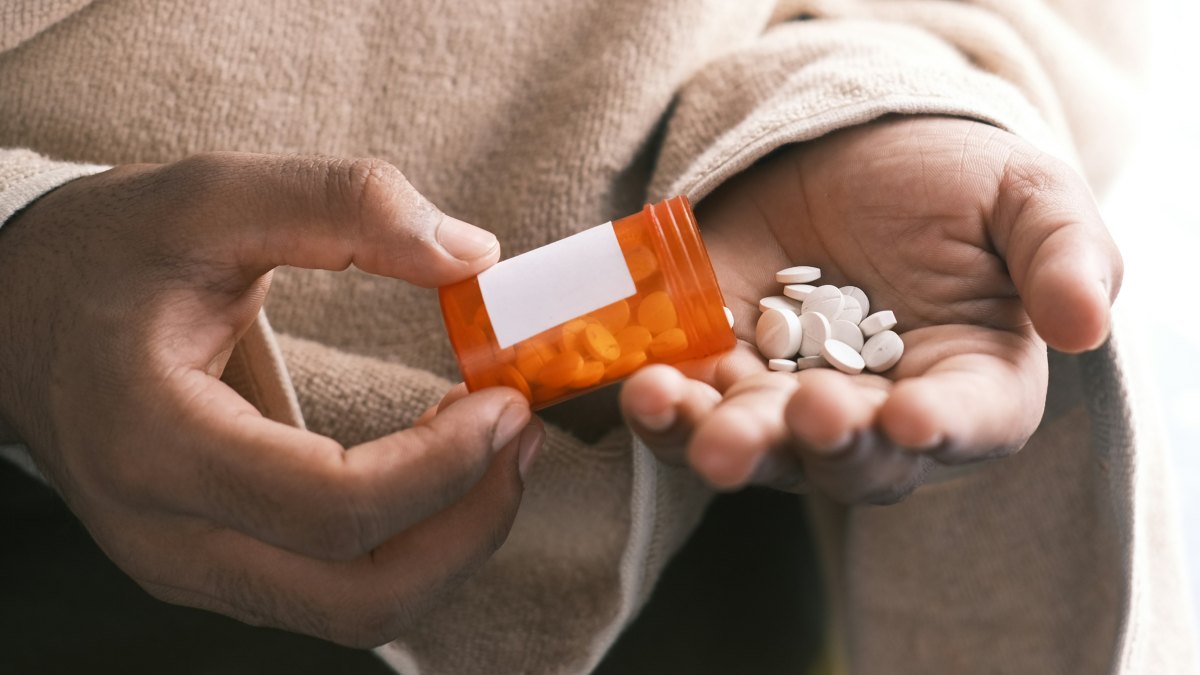
2 Common Lies That People With Addiction Tell Themselves
They don't sound like lies when you believe them. But they quietly sabotage every attempt at recovery.

By Mark Travers, Ph.D. | June 14, 2025
Living a life with addiction is like living in a prison. Many people in recovery from a long-term addiction will often speak of how freeing it feels not to have a substance controlling everything you do. Unfortunately, many people struggle to accept that they have a problem in the first place, delaying their recovery.
A 2015 study published in Drug and Alcohol Dependence shows that denial can be the biggest barrier to sobriety or abstinence. Researchers highlight that despite how much addiction can lower your quality of life, it's common for people to deny having a problem — even though its effect on their lives is quite evident to everyone else.
One reason for this is that many people view addiction through a stereotypical lens. Popular media has taught us to "spot" a person with an addiction through the way they look, act or their lack of a functioning, socially acceptable lifestyle.
According to an article by the National Institute on Drug Abuse, addiction is a "chronic, relapsing disorder characterized by compulsive drug seeking and use despite adverse consequences." These symptoms are not limited to drugs alone — they can apply to food, sex or even social media.
Even though it's one of the most detrimental reasons, denying you have an addiction is not the only thing keeping you tied to your substance of choice. People with addictions tell themselves many things to make sure they never have to lose what they depend on most, and so they don't alarm those around them.
Here are two lies that keep people with addictions trapped in harmful cycles of behavior.
1. 'My Life Is Not Falling Apart'
Unfortunately, most people will only believe they have a problem when they see the direct effects an addiction is having on their lives. If you are still making it to work appointments or making it in time to pick up the kids from school, it can be hard to see the impact your substance of choice has on your day-to-day life.
A "high-functioning" person with an addiction refers to someone who can maintain work, relationships and other responsibilities while still falling victim to their addictions. This perception of functionality makes them less likely to get help.
According to a 2014 article in the Canadian Medical Association Journal (CMAJ), such individuals are at higher risk of being impacted by their addiction as people around them often do not intervene, likely because they do not recognize the issue at first.
Dr. Steven Melemis, who specializes in addiction, tells CMAJ, "The job is always the last thing that goes. A (person with an addiction) knows you need your job first and foremost to continue with your addiction."a
In such situations, rather than solely considering one's quality of life to understand the impact of addiction, it's important to reflect on your relationship to a particular substance.
Are you unable to go one day without using it? Have you tried and failed in the past to put your addiction behind you? Do you have to work hard to fit your life around your addiction? These all could be signs that you may appear high-functioning, but are still someone that requires help. Hiding it better doesn't make it go away; it only delays the inevitable.
2. 'I Am Not As Bad As X'
Have you ever side-eyed the 10 am drinker even after you finished two bottles of wine the night before? Or perhaps you thanked your stars that you're not like that person at the party who gets blackout drunk everytime. Many people with addictions will compare themselves to others to prove that they're doing fine.
However, just because you manage to control your impulses in specific situations or might even use substances from a place of privilege, it does not mean you aren't struggling with addiction. Addiction takes on various forms and can look different for different people.
A 2024 survey from DrugAbuse.com reports that at least 22% of 9-5 workers admit to using drugs or alcohol in the workplace. The survey also found that 16% of employees have noticed that one or more of their co-workers use illegal drugs or alcohol at work.
However, these people are often dismissed as "heavy drinkers," or "recreational users." As long as they are contributing members of society, many people struggle to see themselves mirrored in the person with an addiction who has lost everything. This keeps them stuck in their own struggle.
Identifying Addiction
A 2011 study published in the International Journal of Environment Research and Public Health lists these behavioral patterns that can help identify if someone has an addiction:
- Engagement in the behavior to achieve appetitive effects
- Preoccupation with the behavior
- Temporary satiation
- Loss of control
- Suffering negative consequences
Admitting you have an addiction is never easy. Many people with addictions struggle with feelings of shame, feeling as though they have somehow failed in life or would be a burden if they asked for help. While the road to recovery is not linear, it's only possible through the acceptance of support and learning to have self-compassion.
Self-awareness is a powerful first step to recovery, and it often starts with questioning our own mental defenses.
Do you cope with life's challenges in healthy ways? Take this science-backed test to learn more: Coping Strategies Scale
A similar version of this article can also be found on Forbes.com, here.
